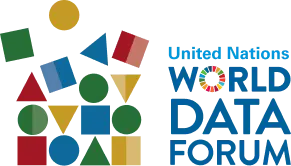
A Hunger for the How: Accelerating Interoperability for Food Security Through a Community of Practice
Development Gateway: An IREX Venture
Civil Society
TBC
Global
To create a global sandbox for interoperability practice, gathering organizations developing products and tools to strengthen agriculture data systems in low- and middle-income countries (LMICs). This community of practice will create a more coherent and efficient approach to agriculture data technical assistance and research, which can generate further use cases that can be applied to other sectors (and other SDGs) globally.
Despite commitments in several global initiatives to advance interoperability, data and system interoperability has stalled, or is moving too slowly to keep up with emerging global digital needs. However, there is much fragmented knowledge of what has worked, and what hasn’t, to support interoperability initiatives among organizations building better integrated data systems, for example in agriculture.
With the rise of AI tools to tackle food insecurity and drive agriculture productivity, practical sharing of lessons and opportunities is essential, as a foundational piece, and accelerator, of digital transformation.
By fostering a more coordinated approach, a cross section of the digital community (statisticians, economists, technologists, and sector experts) can increase impact by streamlining resources, improving tools, and exchanging feedback on new methods of capacity building. Robust exchange can also advance understanding of the risks and opportunities that automation, machine learning and algorithmic models can have within interoperable architectures.
Activities:
● A new Interoperability Community of Practice led by DG and a consortium of partners, building from and channeling existing groups working on standards, digital public goods, and digital public infrastructure in the agriculture space
● Link to relevant existing groups. Insights and implementation knowledge that can support the Collaborative for Administrtaive Data (CAD) Task Team 3 on Data Linking. The Rome Data Champions Group. Feed insights into both groups. Feeding in information, briefs etc.
● Knowledge sharing and dissemination fo emerging good practices around interoperability practicies within agriculture food chains/food security
● Peer review and support for documentation of case studies (papers, briefs, blog posts) around successess and failures to implement Interoperability-friendly structures within data ecosystems.
Progress will be monitored through regular meetings of the collaborative partners, annual evaluations (virtual retrospective meeting) of activities and outcomes, and feedback mechanisms from members. Metrics such as the number of partners involved, the frequency of knowledge sharing activities, and any new collaborations or partnerships that resulted from such activities will be used to assess progress.
